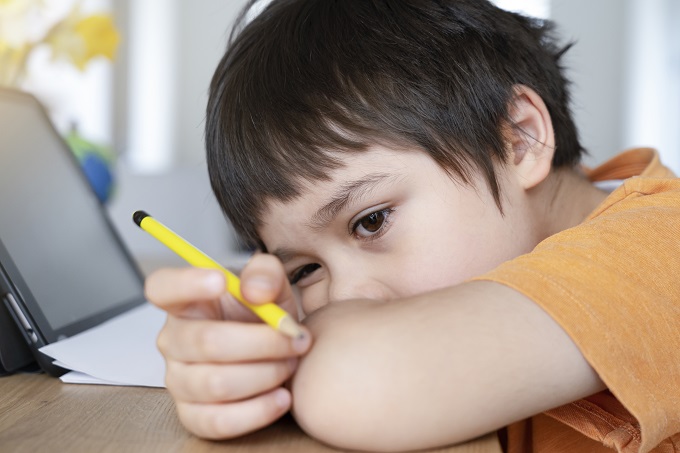
© Anchalee - stock.adobe.com
<p><strong>1. Stay informed yourself</strong>. As the Prime Minister reminded us, in a crisis situation, rumours abound.</p>
<p>Avoid getting your news from social media, instead go to the Ministry of Health website or other reputable sources. Information is available in a range of languages and in simple to read form. Read the current advice for yourself and avoid following the suggestions of well-meaning friends and relatives unless you have checked it out. Listen to the experts. Well known New Zealand scientists, such as Dr Siouxsie Wiles and Dr Michelle Dickinson, for example, have explained the virus and dispelled myths in easy-to-understand ways.</p>
<p><strong>2. Model the behaviours you want children to adopt.</strong></p>
<p>Children take their cues from you. If you display anxiety, they will pick up on it. Stay calm and have measured conversations about what is happening. Most children already knew how to cough and sneeze into their bent elbow, but they do need to be shown how to carefully wash their hands and avoid touching their faces.</p>
<p>Try to practise these habits with good humour and turn them into something fun; how many songs do we know that we can sing for 20 seconds when we wash our hands? How else can we greet each other without touching hands and faces?</p>
<p><strong>3. Take your lead from your children.</strong> You know them best.</p>
<p>Try not to overwhelm them with information they don’t need or are not ready for. Be prepared to answer their questions with factual information and focus on what we can do to prevent the spread. If a child is displaying behaviours that are out of the ordinary, you might want to have a quiet conversation to see if it’s the virus that’s worrying them. It might be something quite different. Teach calming practices as a matter of routine.</p>
<p><strong>4. Teach them about social responsibility.</strong> Of course, your children want to hold your hand, hug their grandparents and show affection to those they care about. Care now needs to be taken in wider social settings and where someone is in a high-risk category.</p>
<p>Social distancing is not just about keeping ourselves safe but protecting others as well, especially those who are vulnerable. What other ways can we show care and affection when we need to keep our distance? Draw pictures, write letters, talk by FaceTime or other media. Social contact is vital but physical contact is becoming riskier.</p>
<p><strong>5. Provide reassurance but don’t make promises you can’t keep.</strong> We don’t know what will happen in this moving situation so we can’t say that we won’t be affected. We can provide assurance that the Government has already taken steps to protect the country, the medical system is preparing for people getting sick and if we need to close schools, their teachers will still be helping them learn.</p>
<p>As with other crisis situations we have faced in the past decade, children need familiarity, regular routines, distraction from worrying, a chance to talk when they need to, a plan for something useful they can do and to know that they are still cared for despite the fact the world around them is in a state of flux.</p>
<h3>Author: Professor Carol Mutch is from the Faculty of Education and Social Work. Her research specialises in the role of schools in disaster response and recovery.</h3>
<h6>This article reflects the opinion of the author and not necessarily the views of the University of Auckland or School News. Used with permission via UoA, originally from Newsroom <a href="https://www.newsroom.co.nz/ideasroom/2020/03/22/1092897/how-to-talk-to-children-about-covid-19" target="_blank">How to talk to children about Covid-19</a> 22 March 2020.</h6>

NZEI Te Riu Roa is considering legal action against the government for the disestablishment of…
NZQA is implementing AI-marking for all Year 10 written assessments from this year onwards, following…
Teaching personal financial responsibility isn't enough. Children should be taught broader economic context, argue New…
When students can't hear the teacher, they can't learn properly. Sound quality matters in education…
The Garden City is rich with learning opportunities, no matter what subject or part of…
Teaching Council of Aotearoa launch school leaders’ stories project with Unteach Racism to challenge institutional…
This website uses cookies.